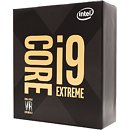
AMD 2nd Gen Ryzen Threadripper MCM Configuration Confirmed, More Details
Tech Day slides leaked to the web by Kitguru provide a confirmation of how AMD is wiring out the additional two dies on the 24-core and 32-core Ryzen Threadripper 2000-series MCMs on the socket TR4 platform. We had speculated that because the quad-channel DDR4 memory and PCIe interfaces are wired to two diagonally-opposite dies on AMD X399 chipset motherboards; in the interest of backwards compatibility, AMD could wire out memory and PCIe from just two out of four dies on the multi-chip module, and have the two additional dies seek memory and PCIe over the InfinityFabric interfaces.
The obvious trade-offs with this design choice is that latencies to the dies with indirect memory/PCIe access are higher, and that reflects heavily in AMD's own performance figures for comparing the 32-core 2990WX with the 16-core 2950X from the same generation. The 2990WX is "only" up to 64 percent faster than 2950X at Cinebench R15 nT, despite having double the number of cores. To its credit, the 2950X has higher clock-speeds (3.50 GHz nominal with 4.40 GHz boost) than the 2990WX (3.00 GHz nominal with 4.00 GHz boost). The presentation also puts out interesting bits of information such as AMD's own performance numbers showing 10-15 percent performance gains between the 2950X and the 1950X; and performance gains of the 2990WX over Intel Core i9-7980XE.
The obvious trade-offs with this design choice is that latencies to the dies with indirect memory/PCIe access are higher, and that reflects heavily in AMD's own performance figures for comparing the 32-core 2990WX with the 16-core 2950X from the same generation. The 2990WX is "only" up to 64 percent faster than 2950X at Cinebench R15 nT, despite having double the number of cores. To its credit, the 2950X has higher clock-speeds (3.50 GHz nominal with 4.40 GHz boost) than the 2990WX (3.00 GHz nominal with 4.00 GHz boost). The presentation also puts out interesting bits of information such as AMD's own performance numbers showing 10-15 percent performance gains between the 2950X and the 1950X; and performance gains of the 2990WX over Intel Core i9-7980XE.
